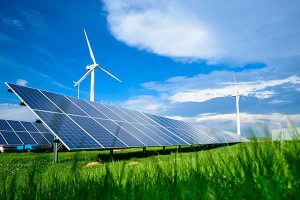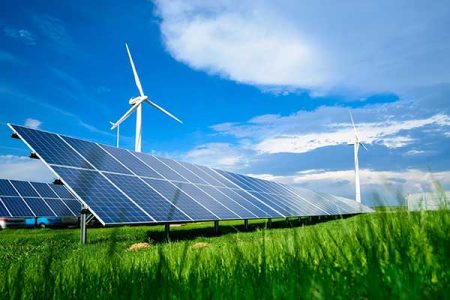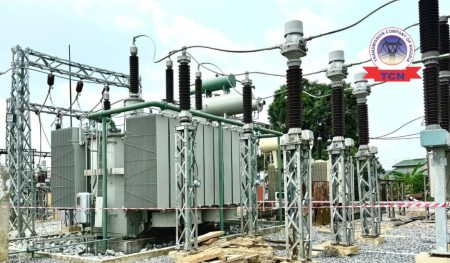Morocco’s Scorching 2024: A Year of Record-Breaking Heat and Persistent Drought
The year 2024 etched itself into Morocco’s history as the hottest year on record, a stark reflection of the escalating global climate crisis. The Directorate of National Meteorology (DMN), Morocco’s meteorological agency, confirmed this grim milestone, reporting a national average temperature anomaly of +1.49 degrees Celsius (+2.7 degrees Fahrenheit) compared to the 1991-2020 baseline. This alarming increase underscores the intensifying impact of climate change on the North African nation, with particularly significant temperature spikes observed during the autumn and winter seasons, deviating from established climate patterns. Several cities across Morocco experienced unprecedented daily heat records, with Marrakesh reaching a scorching 47.6 degrees Celsius (117.7 degrees Fahrenheit) and Beni Mellal hitting 47.7 degrees Celsius (117.8 degrees Fahrenheit), both in July. This extreme heat placed immense stress on infrastructure, agriculture, and human health, highlighting the urgent need for climate adaptation measures. While 2024 holds the record for the hottest year overall, the highest single temperature ever recorded in Morocco remains 50.4 degrees Celsius (122 degrees Fahrenheit) in Agadir during August 2023, further illustrating the country’s increasing vulnerability to extreme heat events.
The persistent drought that has gripped Morocco for seven consecutive years continued to cast its shadow over the nation in 2024. The DMN reported a significant rainfall deficit of -24.7 percent, compounding the challenges posed by extreme heat. This prolonged drought has severely impacted water resources, agricultural productivity, and livelihoods across the country, exacerbating existing socio-economic vulnerabilities. While torrential rains in September 2024 brought temporary relief to some regions, they were tragically accompanied by devastating floods that claimed the lives of 18 people. The DMN emphasized that these localized downpours, although intense, were insufficient to offset the overall rainfall deficit, underscoring the severity of the ongoing drought and the complexities of water management in a changing climate.
Global Climate Change: The Driving Force Behind Extreme Weather
The record-breaking heat experienced in Morocco during 2024 aligns with the global trend of rising temperatures, driven primarily by human-induced climate change. The accumulation of greenhouse gases in the atmosphere, largely due to the burning of fossil fuels, disrupts the Earth’s energy balance, trapping heat and leading to a warming planet. This warming trend manifests in various ways, including more frequent and intense heat waves, altered precipitation patterns, rising sea levels, and increased frequency of extreme weather events. Scientists have unequivocally linked the increasing occurrence and intensity of heat waves to climate change, highlighting the urgent need for global action to mitigate greenhouse gas emissions and adapt to the unavoidable impacts of a changing climate.
The global context further emphasizes the significance of Morocco’s experience in 2024. Globally, 2024 was the warmest year on record, surpassing previous records and solidifying the alarming trajectory of global warming. Climate projections indicate that 2025 is also likely to rank among the top three warmest years, underscoring the continued acceleration of climate change. This global trend reinforces the urgency of addressing climate change as a shared global challenge, requiring international cooperation and concerted efforts to reduce emissions and build resilience.
Impact on Morocco: A Nation Facing Climate Challenges
The combined effects of record-breaking heat and persistent drought in 2024 posed significant challenges to Morocco across various sectors. The agricultural sector, a cornerstone of the Moroccan economy and a vital source of livelihoods, suffered significant losses due to water scarcity and extreme temperatures. Reduced crop yields and livestock productivity threatened food security and rural incomes, highlighting the vulnerability of agricultural systems to climate variability. The water sector also faced tremendous strain, with dwindling water resources impacting access to clean water for both human consumption and agricultural needs. The prolonged drought intensified competition for scarce water resources, raising concerns about water security and the long-term sustainability of water management practices.
Beyond the immediate impacts on agriculture and water resources, the extreme heat of 2024 posed significant risks to human health. Heat stress, heatstroke, and other heat-related illnesses became more prevalent, particularly among vulnerable populations such as the elderly, children, and those with pre-existing health conditions. The increased demand for cooling systems further strained energy grids, highlighting the interconnectedness of climate change impacts and the need for resilient infrastructure. The extreme weather events, including both heat waves and floods, also caused damage to infrastructure, disrupted transportation networks, and impacted economic activities, further underscoring the far-reaching consequences of climate change.
The Path Forward: Adaptation and Mitigation in a Changing Climate
The experiences of Morocco in 2024 underscore the urgent need for both adaptation and mitigation measures to address the challenges of climate change. Adaptation involves adjusting to the current and projected impacts of climate change, such as developing drought-resistant crops, improving water management practices, and enhancing early warning systems for extreme weather events. Mitigation focuses on reducing greenhouse gas emissions to limit the extent of future warming, primarily through transitioning to renewable energy sources, improving energy efficiency, and promoting sustainable land use practices. For Morocco, a multifaceted approach that integrates both adaptation and mitigation strategies is crucial for building resilience and ensuring sustainable development in the face of a changing climate.
Investing in climate-resilient infrastructure, promoting sustainable water management practices, and diversifying agricultural production are essential steps towards adapting to the impacts of climate change. Simultaneously, transitioning to renewable energy sources, promoting energy efficiency, and implementing sustainable land management practices can contribute to mitigating future warming. International cooperation and support are also crucial for enabling developing countries like Morocco to effectively address the challenges of climate change. Access to climate finance, technology transfer, and capacity building are essential components of a global response to this shared challenge. By combining adaptation and mitigation efforts, Morocco can build a more resilient and sustainable future, mitigating the risks of climate change while fostering economic growth and social well-being.














